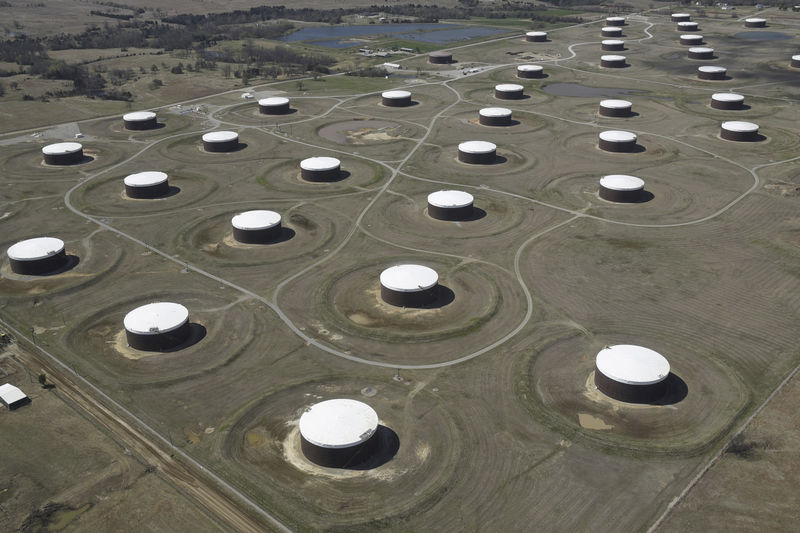By Laila Kearney
NEW YORK (Reuters) - Oil prices climbed more than 2 percent on Friday after an outage at Saudi Arabia's offshore oilfield boosted investor expectations for tightening supply.
The international Brent crude benchmark rose $1.51, or 2.3 percent, to $66.08 a barrel, the highest since November 2018, by 12:34 p.m. EST (1734 GMT). U.S. West Texas Intermediate crude futures were up $1.18 at $55.59 a barrel, or 2.2 percent.
The two benchmarks were on track for weekly gains of about 6 percent.
The partial closure of Saudi Arabia's Safaniya, the world's largest offshore oilfield, occurred about two weeks ago, a source said on Friday. Safaniya has production capacity of more than 1 million bpd.
It was not immediately clear when the field would return to full capacity.
"It's another factor that is raising concerns about the availability of crude," said Phil Flynn, an analyst at Price Futures Group in Chicago. "All of a sudden you don't have to worry just about OPEC cuts. Now you have a problem with Saudi Arabia's ability to actually produce as much oil."
The Organization of the Petroleum Exporting Countries (OPEC) and allies led by Russia started voluntary production cuts last month, aiming to tighten the market.
OPEC's de facto leader, Saudi Arabia, said on Tuesday it would cut an additional half a million barrels per day (bpd) in March more than it previously pledged, sending prices higher.
Bank of America Merrill Lynch (NYSE:BAC) said in a note it expects that by the fourth quarter of 2019, OPEC supply will have declined by 2.5 million bpd from the year-earlier period.
Supply has been curbed as well by U.S. sanctions on Venezuelan and Iranian crude and reduced Libyan output because of civil unrest. Security threats could threaten Nigerian production after general elections this weekend as well.
Growing investor confidence in the prospect of a coming U.S.-China trade deal also supported prices. Talks between China and the United States to resolve their trade war will restart next week in Washington, with both sides saying this week's negotiations in Beijing showed progress.

U.S. oil drillers added rigs for the second week in a row, up three rigs at a total of 857, General Electric (NYSE:GE) Co’s Baker Hughes energy services firm said in a report on Friday..